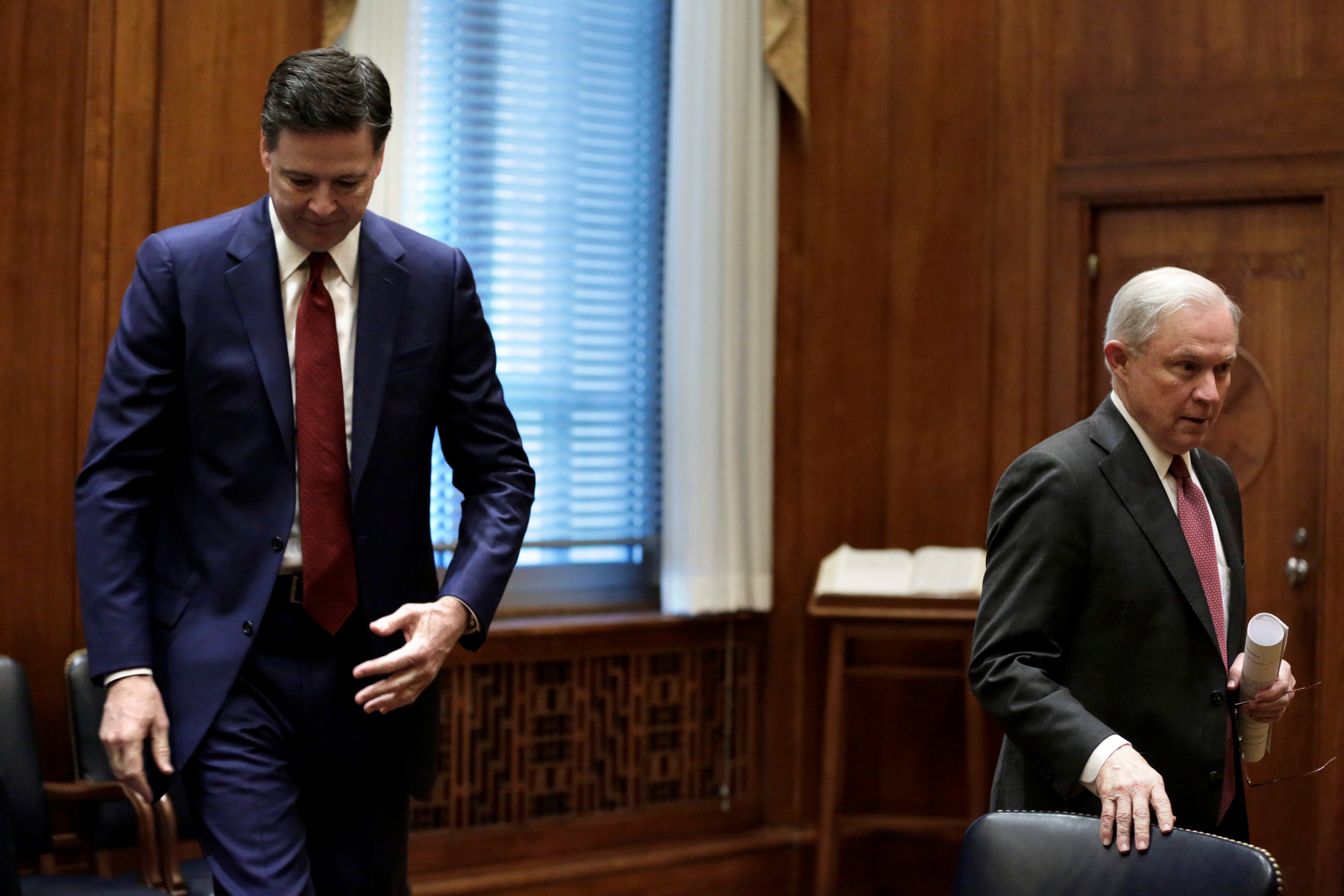New York Times reporter Michael Schmidt’s latest story push-alerted its way into the national consciousness on Thursday afternoon. The piece included so many scoops it was somewhat difficult to process, but here’s the takeaway: Robert Mueller’s special counsel investigation, which of late has mostly been in the news for investigating money laundering and potentially “treasonous” collusion, is still gathering string on the question of whether Donald Trump and his administration committed obstruction of justice vis-à-vis fired FBI Director James Comey.
Here’s what Schmidt’s story reports on that front:
• Trump actively tried to convince Attorney General Jeff Sessions not to recuse himself from Russia-related decisions—and may have done so expressly because of the belief that one of the attorney general’s jobs is to “protect” the president from investigations. (We already knew that Trump was upset that Sessions recused himself, but we didn’t know that he tried to stop it from happening.)
• The White House drafted, but did not send, a letter from Trump to Comey (while the latter was still serving as FBI director and overseeing the Russia investigation) that derided the Russia investigation as “fabricated and politically motivated.”
• Well after Sessions had announced his recusal, but before Comey was fired, the Times says “an aide to Mr. Sessions approached a Capitol Hill staff member asking whether the staffer had any derogatory information about the F.B.I. director. The attorney general wanted one negative article a day in the news media about Mr. Comey, according to a person with knowledge of the meeting.” The implication is that Sessions was seeking to ruin Comey’s credibility on Trump’s behalf. (The Department of Justice denies that Sessions’ office ever sought to gather or plant disparaging information about Comey.)
• Former White House chief of staff Reince Priebus took notes that confirm Comey’s account of Trump pressuring him (Comey) to say publicly that Trump was not personally under FBI investigation for colluding with Russia. (Comey did tell Trump as much privately in early 2017, but to be clear that doesn’t mean it’s still true or that Trump won’t end up being implicated, in the public eye, by the actions of those close to him.)
We already knew that Trump (allegedly) asked Comey for his personal loyalty; (allegedly) asked Comey to drop the investigation into former national security adviser Michael Flynn’s relationship with Russian entities; and told NBC’s Lester Holt that “when I decided to [fire Comey], I said to myself, I said you know, this Russia thing with Trump and Russia is a made-up story.” We now have (alleged) evidence of further efforts to protect Trump by attacking and leaning on the former FBI director.
Of course, Mueller is not expected to indict Trump himself on obstruction or any other charges—but Schmidt’s piece reminds us that he could be building a strong case against Trump to be taken up by an impeachment-minded Congress, if the Democrats manage to win one.
